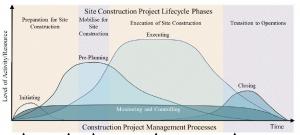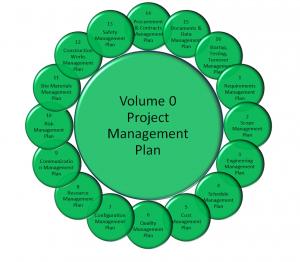Managing ITER assembly: a clear framework for the future
30 Jan 2015
-
Krista Dulon
The Construction Project Management Plan details the required actions during the phase leading up to assembly, during construction execution and, finally, when the testing is complete and the facility is turned over for operations.
The Assembly & Operations Division achieved an important milestone at the end of 2014, as it completed the last volume in a suite of management plans for the assembly of the ITER Tokamak and the installation of plant systems.
These plans define how the works will be organized and managed on the site in the next phase of the project—once the buildings are completed and handed over by the European Domestic Agency. The ITER Organization then has full responsibility for the integration, assembly and testing of components delivered to the ITER site by the seven ITER Members.
The plans describe the Organization's overarching vision of how it will prepare, manage, control and complete the construction of millions of pieces that make up the ITER Tokamak and plant systems (electrical, cooling, fuelling, heating and diagnostic systems).
"These documents form the basis of Assembly & Operations work today and for the next 18 to 24 months," says Steve Gilligan, the Assembly & Planning Responsible Officer in charge of elaborating the 450 pages of the Construction Project Management Plan. "They allow the Division to implement an assembly baseline, prepare contracts, and get industry on board to start the work."
The 17 volumes of the plan form the basis of Assembly & Operations work today and for the next 18 to 24 months, allowing the Division to implement an assembly baseline, prepare contracts, and get industry on board to start the work.
The 17 volumes of the plan were reviewed one by one through ITER's Management and Quality Program—a key process for a licenced basic nuclear facility.
"Our management plan reflects lessons learned in other huge construction and assembly projects," says Steve. "We have collected 'return on experience' data and consulted the best experts from industry and projects around the world to learn lessons. These have then been tailored to meet the special complexities of ITER, to ensure that what we'll go forward with is correct for a project like ITER."
Whether describing the management of human resources, safety, requirements, cost or change control, each volume of the management plan is functionally written, detailing the required actions during the phase leading up to assembly (front-end planning), working alongside industry during execution, and finally when the testing is complete and the facility is turned over for operations.
The plan will now be further developed through ITER's continuous improvement strategy, and underpinned through detailed working instructions, templates and guidelines.
"These plans define an effective and consistent management approach and processes for the ITER Organization, Domestic Agencies and their contractors during assembly, installation and testing," says Rem Haange, head of the ITER Project Department. "My experience shows that when it comes to assembling something as hugely complex as the ITER machine, very detailed, accurate planning is essential for smoother assembly operations and to reach our ultimate goal—to demonstrate the feasibility of fusion energy—more quickly."



